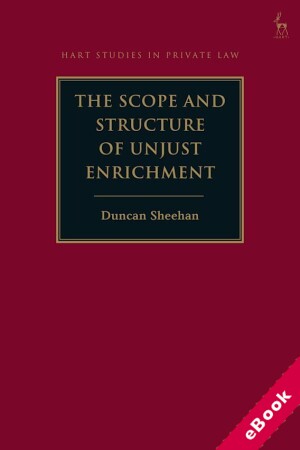
The device(s) you use to access the eBook content must be authorized with an Adobe ID before you download the product otherwise it will fail to register correctly.
For further information see https://www.wildy.com/ebook-formats
Once the order is confirmed an automated e-mail will be sent to you to allow you to download the eBook.
All eBooks are supplied firm sale and cannot be returned. If you believe there is a fault with your eBook then contact us on ebooks@wildy.com and we will help in resolving the issue. This does not affect your statutory rights.
This ambitious book grapples with the complex debates ongoing on the structure of unjust enrichment, proving to be a major contribution to the field.
Responding to the subject's critics, it presents a clearly articulated structure for this branch of private law, arguing that while unjust enrichment has the function of reversing defective enrichments (whether by performance or in another way) there is scope for normative pluralism in how the law achieves this.
Drawing heavily on comparative material from Germany, Scotland and South Africa the book then argues for a legal framework which combines elements of the absence of basis and unjust factors approaches. It assesses how that structure can be mapped against the causes of action that make up unjust enrichment, arguing that some are performance claims - reversing a deliberate, intentional performance - and some are non-performance claims. Other claims, often included in books on unjust enrichment, such as “necessity” should be excluded from the subject area. The book concludes with a treatment of defences.